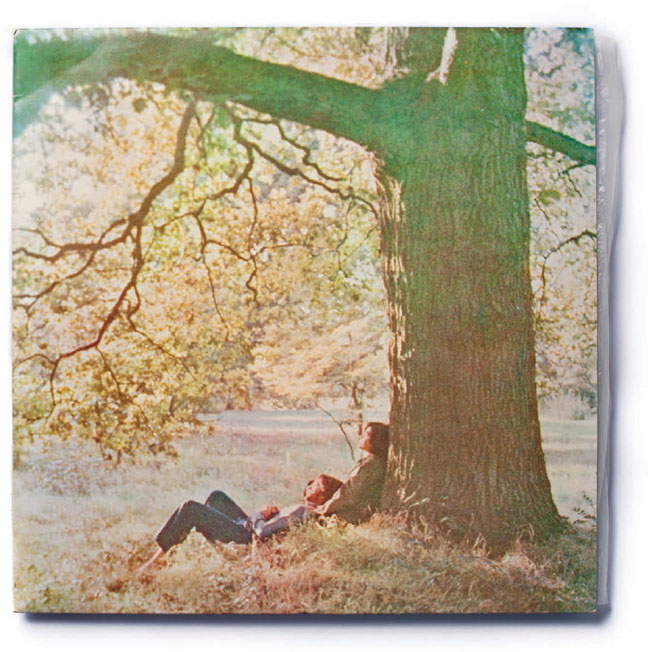
Apple
Produced by John Lennon, Yoko Ono and Phil Spector
Released: December 1970
TRACKLISTING
01 Mother
02 Hold On
03 I Found Out
04 Working Class Hero
05 Isolation
06 Remember
07 Love
08 Well Well Well
09 Look at Me
10 God
11 My Mummy’s Dead
I think it’s the best thing I’ve ever done. I think it’s realistic and it’s true to the me that has been developing over the years from my life,’ is how John Lennon described his first proper solo album to Rolling Stone’s editor Jann Wenner in December 1970. It had been a cathartic few years for Lennon. His marriage to Cynthia had ended, the Beatles were over and he was smitten with artist Yoko Ono who had challenged him to rethink everything about being an artist and a man. Then there was the heroin, a miscarriage, police harassment and just being one of the most famous people on earth. In early 1970 Lennon was in the midst of a full nervous breakdown, almost catatonic. Ono called on psychologist Arthur Janov who had made a name for himself with what he called ‘primal therapy’.
For Lennon the fundamental issue was being abandoned by his parents when he was a young child. All his life he had the need to be loved while under the surface a seething anger raged. The extraordinary, unimaginable fame that the Beatles experienced made no sense to him; the group that he formed and fronted had turned into a poisoned chalice. Janov worked with the Ono-Lennons for several months through the summer of 1970. Then, in September, Lennon went into Abbey Road studios for a month and emerged with his own masterpiece.

Always shy and modest about his abilities in the studio, Lennon recruited the rhythm section that was closest to him – Ringo Starr on drums and Klaus Voormann on bass. Billy Preston played piano on one track and Phil Spector co-produced and played piano on ‘Love’. Yoko provided her inspiration and the rest was Lennon at his most pure … and raw. Having flirted with the avant-garde in previous years, for this album the musicians primed themselves by listening to early Jerry Lee Lewis records and playing traditional blues. The result was an album that melded avantgarde minimalism with pure rock & roll and created a sound that was new and unique. From the gorgeous melodies of ‘Love’ and ‘Look at Me’ to the searing ‘Well Well Well’ and venomous ‘I Found Out’, this is Lennon’s strongest selection of songs, before or after.
‘All these songs just came out of me. I didn’t sit down to think “I’m going to write about Mother” or “I’m going to write about this, that or the other”,’ Lennon told Wenner.
Once written, Lennon knew that the album had to begin with ‘Mother’. The song opens with the ominous pealing of a church bell and it proceeds at a funereal pace as Lennon lets out the unfiltered appeal of a bewildered son crying ‘Mother … you left me, but I never left you’. It doesn’t get more real and honest than that and it is the central issue that his life and Plastic Ono Band pivots on.
From the intimate and particular, Lennon turns his gaze to society at large. There’s ‘Working Class Hero’ in which Lennon debunks not only the class system but also the entertainers like himself who churn out protest songs. In a sense it echoes Dylan’s line ‘Don’t follow leaders/Watch the parkin’ meters’ (‘Subterranean Homesick Blues’).
The other key track on the album is ‘God’, which opens with a piano dirge before Lennon runs through a laundry list of faiths and cults to which he doesn’t subscribe. But then he gets to ‘I don’t believe in Elvis/I don’t believe in Zimmerman/I don’t believe in Beatles/I just believe in me/Yoko and me … The dream is over’. This was 1970 – the time when the youthquake of the ’60s was supposed to deliver utopias for everyone. In that context, Lennon singing the line ‘the dream is over’ was a reality check and it was heard everywhere around the world. John Lennon was calling time on the Fab Four and on history’s greatest ever party, as only he could do.